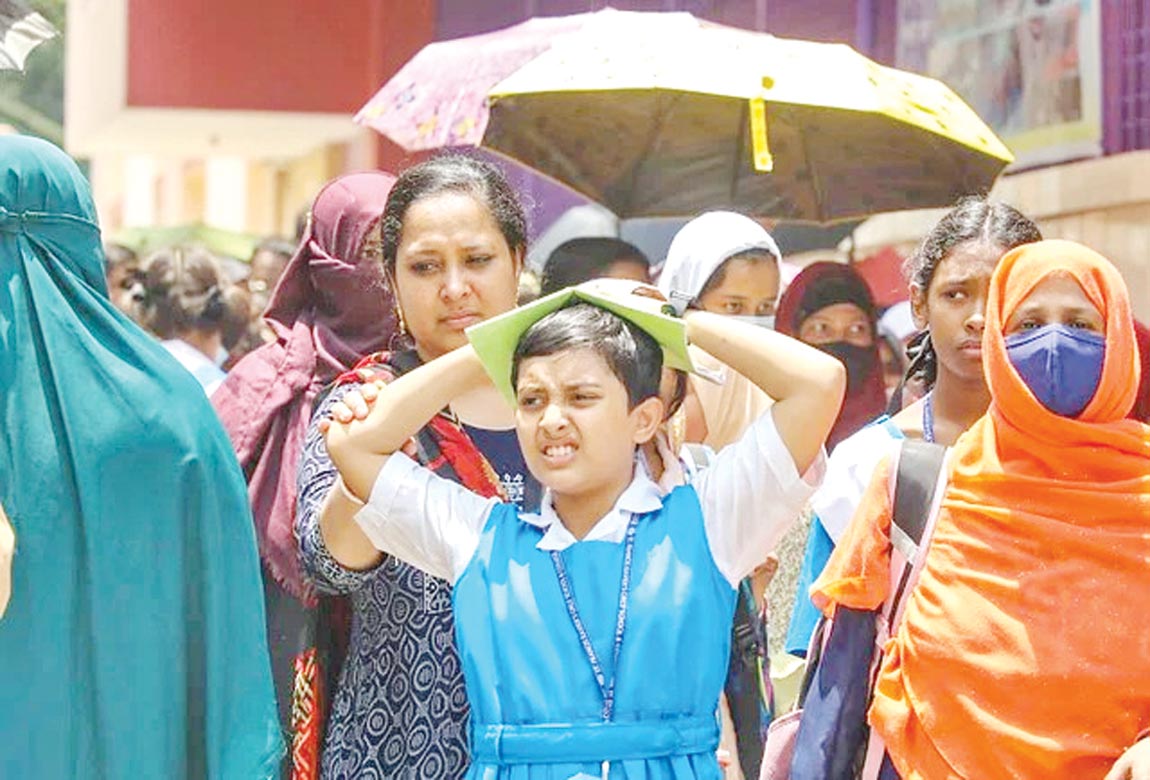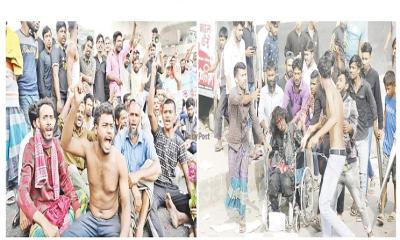-Country's edu system has changed 7 times since 1971
-What should be done is a proper engineering in education system with the aim of educating students in both ways like technical, technological and social sciences and art knowledge so that they can be fitted for the real world and can handle the unknown future
Saleheen Babu, A Concerned Parent
How many roads must a man walk down, before you call him a man? We can ask like Bob Dylan that how many curriculums a nation should take, before getting the destination. There is rising another question then that what is our collective destination actually? Because what we have seen since independence is not connected with destination. The major disconnection between our destination and desire is education system. It is one of the major severe problems in Bangladesh. The country is facing many problems with its education sector and job sector subsequently. Students are perplexed with these frequent changes in the curriculum.
After independence, the country's education system has changed seven times. During this period the evaluation system changed three times. Most of the changes have happened in the last decade and a half. After the first syllabus was formulated in 1977, the textbook was revised in 1986. In 1992 the primary level was converted to competency-based curriculum; in 1995 the secondary level was changed to objective-based curriculum. Later in 2002 some textbooks of primary education were revised. Then in 2012 creative method (Srijanshil) was introduced. Test-based assessment has been around since the British rule.
However, the former Awami League government suddenly started experiential evaluation from 2023 by excluding this education program. In this regard, constructive criticism or suggestions of academics were not accepted. Currently, the education program is going on in the first, second, third, sixth, seventh, eighth and ninth classes according to the new curriculum. According to the previous plan, it was supposed to be introduced in all classes up to the middle school through the introduction of the new curriculum in the fourth, fifth and tenth classes next year.
In the new curriculum, the traditional methods of education including learning, teaching methods, assessment system were changed. Parents could not accept this change in the educational life of more than one and a half crore students in general schools, madrasas and technical educational institutions. On September 1, the interim government turned its back on the new curriculum, which was heavily criticized by parents. The Ministry of Education has made it clear that this curriculum is not implementable, blaming the lack of preparation of teachers, ambiguity about the subject matter, evaluation, lack of institutional capacity.
Calling for an end to the game of politics over textbooks, the educationists said that the teaching and evaluation methods of the classrooms have been changed by changing the curriculum one after the other at the primary, secondary and higher secondary levels. The young students were disoriented. Sometimes even teachers don't understand clearly how to involve students in new methods. Parents are also confused. Due to this, proper piloting and research should be done to change the curriculum.
NCTB sources say that the textbooks are based on the old curriculum. The book is being revised and made suitable for printing. More than 50 experts are doing the work. Many teachers from different universities and many people working on education have joined them. Meanwhile, on September 15, the Ministry of Education formed a coordination committee of 10 members with the aim of properly completing and coordinating all the textbooks prepared and printed by NCTB. The committee formed on September 28 has been cancelled. In this context, Education Advisor Wahiduddin Mahmud said that there is very little time available to print the textbooks for the new academic year. So there is no scope for major changes now. So now the book is being printed with the necessary corrections. He said that major reforms in the textbooks require time, which can be done later with time.
Meanwhile, the National Curriculum and Textbook Board (NCTB) has made a five-member committee to find out how much money the government has wasted in implementing the much-criticized new curriculum. The committee, headed by member of NCTB, has been asked to give a quick report.
It is known that hundreds of crores of people's money has been wasted. According to those concerned, the entire money for teacher training has been wasted as the government has turned its back on the new curriculum. Besides, expenditure on seminars for curriculum formulation is also wasteful. Those concerned with the formulation of the new curriculum said that the nation could not adapt to sudden radical changes in the education system that had been going on for many years. The then education minister did not listen to the demands and suggestions of some concerned.
He prefers flattery over constructive criticism. Some people are in trouble with advice. Those concerned with formulating the outline of the curriculum said that no civilization can accept overnight changes in education and law. That's why the British left, but their legal framework is still being used in the country. The educational system that came from their hands has been practiced for half a century even after independence. Therefore, some people associated with NCTB realized long ago that the society would not accept the transformation of the curriculum. During the formulation of the outline and later, many people concerned wanted to explain the matter to the then minister. But in return they received deprivation and reproach.
The educationist said that even after more than 5 decades of independence, what will be the education system of the country has not yet been determined in terms of the reality of the country. Frequent curriculum changes without a long-term plan to bring the education system up-to-date have a negative impact on students. It takes time for teachers, students and parents to get used to a new curriculum. In this way, teachers and students are forced to adapt to the new curriculum one after another.
The educationist said that after independence, in 1972, the first Education Commission was formed in the country headed by renowned educationist and scientist Qudrat-i-Khuda. Although the commission submitted the report, the education policy was not implemented. After that, there were at least eight education commissions and committees during various governments, but none of them saw the light of day. Majid Uddin Education Commission, Shamsul Haque Education Commission in 1997, MA Bari Commission in 2002 and Moniruzzaman Mia Commission in 2003 were formed during former President HM Ershad's tenure.
Last on April 8, 2009, the last Education Policy Formulation Committee was held under the leadership of National Professor Kabir Chowdhury (now deceased). The education policy recommended by the committee was approved by the Cabinet in May 2010. Although several decisions of this education policy have been implemented, many important decisions have not yet been implemented. For example, the decision to make primary education up to class 8 has not yet been implemented, nor has the Permanent Education Commission.
A parent name Saleheen Babu, employee of a renowned private company, said, we were perplexed when Awami League proposed the new evaluation system after the creative method which was also installed by them, our children got frightened by unknown method and we too. He added, all the Bangladeshi rulers were insincere and it seems now they are not studied properly about the education system and reality. What should be done is a proper engineering in education system with the aim of educating students in both ways like technical, technological and social sciences and art knowledge so that they can be fitted for the real world and can handle the unknown future.
ZH






